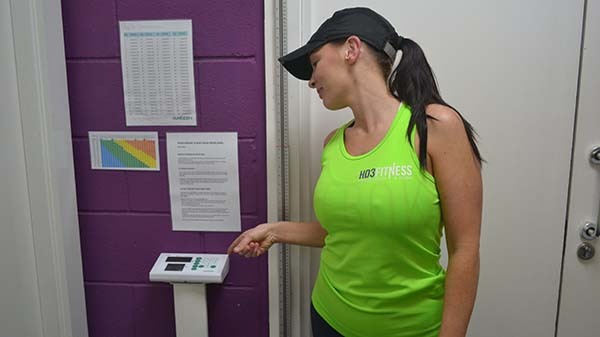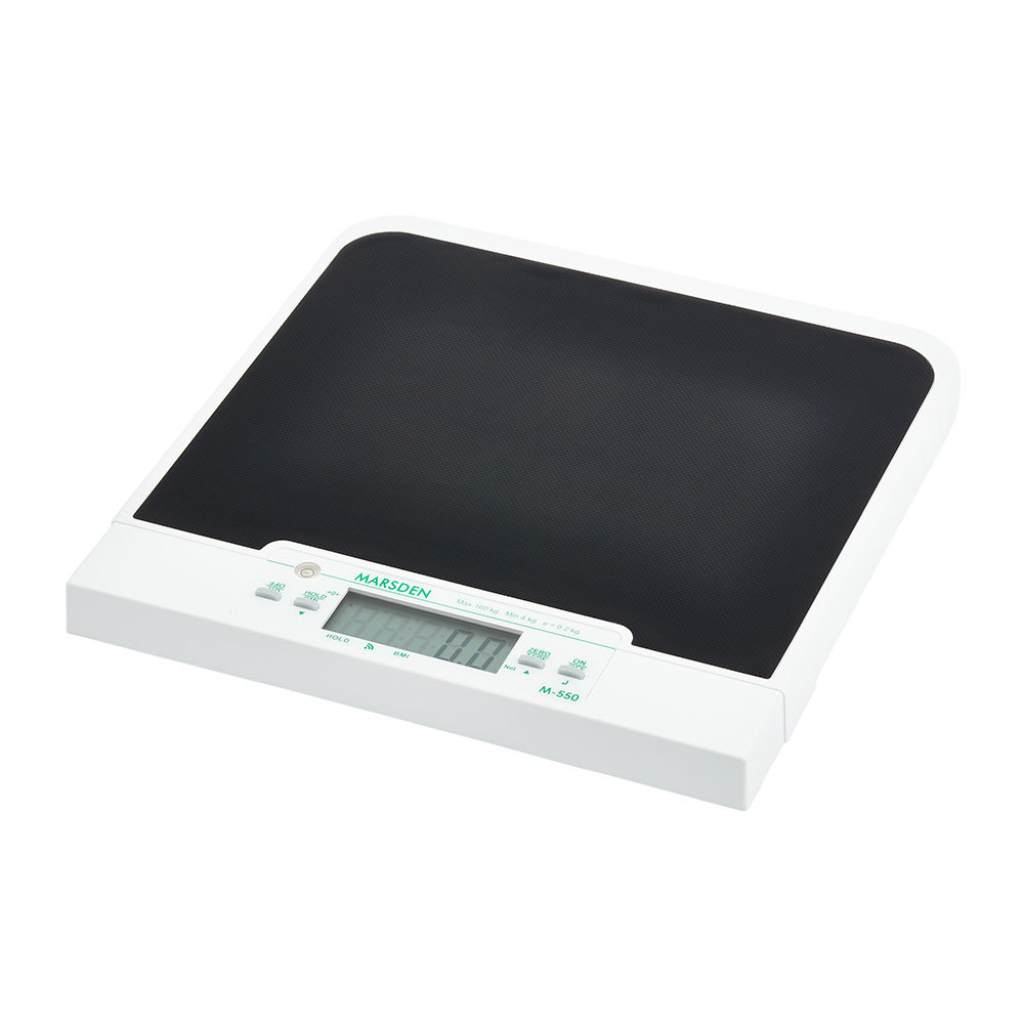The importance of weighing scales in sport

The use of weighing scales in sports is unique because athletes and active individuals have high daily energy expenditure – so weight management is an essential part of daily routine.
Scales provide an easy and reliable method to gauge general fitness.
Typical bathroom scales, however, cannot determine health effects of weight changes like whether weight gain can be attributed to fat or muscle.
This blog post takes a look at why weighing scales play such an important role in sports, with tips from athletes in a wide range of sports.
Why are weighing scales in sport important?
Athletes require more energy than the rest of us due to their heavy training schedules. This means they need to consume larger quantities of food and more calories.
According to Melinda Manore, “Depending on the sport, it is not unusual for athletes to want to lose body fat while gaining or maintaining lean tissue. While some athletes appear to be naturally lean, with weight and body size well matched for their sport, others need to change their weight and body composition to be competitive.
“For the athlete with excess body fat, weight loss could improve sport performance and reduce the risk of chronic disease. Borchers et al found that 21% of their Division 1 college football players were obese (greater than 25% body fat) and had insulin resistance. 9% had metabolic syndrome. For these athletes, weight loss could improve performance and prevent the development of serious chronic diseases.”
The importance of setting weight goals in sport
The ultimate goal for athletes is to identify a healthy weight they can maintain throughout the year, while minimising the amount of weight that needs to be lost for competition/ .
Athletes should consider the following questions to help identify whether their target weight is realistic and can be maintained without constant dieting:
- Does the goal weight minimise health issues that can increase the risk for injuries and promote good health and eating habits, while allowing for optimal sport training and performance?
- Does the goal weight take into consideration the genetic makeup and family history of body weight and shape?
- Is the goal weight appropriate for age and level of physical development?
- Can the goal weight be maintained without constant dieting or restraining food intake, which could lead to an eating disorder?
Weighing scales in sport mean athletes can check their weight during specialist dietary programmes and means they can stay at their optimum weight - as the examples below explain.
Athletics: The importance of weighing to avoid injuries
Having a suitably portable scale for athletics, like the M-550 Digital Scale, can make tracking your weight considerably easier on-the-go.

Ruggero Loda of Running Shoes Guru spoke to Marsden to discuss how weighing is pivotal as part of his training.
“I use weighing scales to track my weight regularly. I used to weigh myself every day upon waking up, but since this year I switched to weighing myself every Monday morning and logging it in my journal.
“While weight is not a one measure that summarises your overall level of fitness, it is one of the key metrics. For running specifically, it has been proven there is direct correlation between weight loss and performance and improvement. Each case is different, but a weight loss of 10 pounds statistically translates into a 2 minute improvement in 5k time.
“Weighing yourself regularly can be the first indicator of how your nutrition or training is going.
“I started intermittent fasting about a year ago. I only eat in an eight hour window between noon and 8pm. I fast the remaining 16 hours of the day. I train - fasted - in the morning.
“Runners that are overweight have two disadvantages: they are slower and they load their joints and articulations with unnecessary stress, which often leads to injury. Keeping your weight under control is a basic need of serious runners.”
Athletics: The importance of the fastest weight
In a blog post earlier this month, Marsden spoke to amateur runner Matt Smith, about how he uses his Marsden M-550 to help achieve his personal running targets.
Matt said, “Sticking to (a) perfect weight is important to me in order to reach what is best for my power to weight ratio.
“For my best results I have been in the category of 63-65kg. Going into competitions too light can lose the power that is required and also can affect stamina later on. Going too heavy means I cannot run as fast for prolonged periods.
“To compete effectively in 5k and 10k runs I tend to see the 64kg mark as around the perfect weight to perform with my body composition.”
Football: The importance of monitoring overall health
Last year, Marsden followed the progress of non-league football side, Lewes FC.
Lewes FC use the readings provided on the MBF-6010 to monitor the fitness of the players.
“We weigh the players pre-season, at the end of the season and we do a weigh-in after Christmas,” physio Debbie told Marsden. “We’re looking at not only their weight but also muscle mass and much water might be in the body.”
The MBF-6010 reveals Fat Mass, Body Fat Percentage and Total Body Water and other readings to give an overall picture of body health. The print out of results are recorded and looked back on over the course of the season to see how readings have improved.
Karting: The importance of hitting weight limits
To compete in karting competitions, drivers must meet set weight requirements. As go-karts are small and light, weight can affect the driver’s ability to compete.
John Vigor of Club 100 Racing, said: “We use the HSS to weigh drivers prior to and after racing in our various kart championships. We run minimum drivers weights, so a number of drivers have to ballast up to achieve the minimum required driver weight.”
Rowing: The importance of a collectively low weight
Weight limits also apply to olympic sports, such as rowing.
For the Women’s lightweight double the two athletes must average 57kg two hours before the race - and the athletes are not allowed to compete if the two athletes are over this average.
Why are Class III Approved scales important for athletes?
Class III Approved scales are those recommended by NAWI for medical weighing. As these scales are tested much more thoroughly than standard, non-approved weighing scales they can be trusted by athletes to give an accurate weight reading. The NAWI directive states all scales ‘used in the determination of mass in the practice of medicine, for the purposes of monitoring, diagnosis and medical treatment’, should be Class III Approved hence why a Class III Approved weighing scale provides accurate, consistent readings..
Which types of weighing scales are used in sport?
Gym scales: Gym and fitness scales are typically used in gyms, health clubs and spas - they provide weight and BMI information, are affordable and many are Class III Approved. The Marsden M-150 is a robust column scale with height measure, suitable for gyms and health clubs. It can be switched between kilograms and stone,
has a BMI calculation and weight readings are displayed on the bright LED display.
Floor scales: A medical floor scale features a flat surface for the athlete (or patient) and usually, a weight display on one side. They are ideal weighing scales in sport because they are easy to use, lightweight and portable. The M-550 is Marsden’s lowest priced Class III Approved scale; it has a 160kg capacity and is accurate to 200g (below 100kg). Browse Marsden’s full range of medical floor scales.
Body composition scales: This type of gym scale provide a calculation of body health based on a number of metrics. The readings provided are Muscle Mass (MM), Basal Metabolic Rate (BMR), Total Body Water (TBW), Fat Free Mass (FFM), Fat Mass (FM), Body Fat Percentage, Protein Mass (PM), Extracellular Water (ECW), Intracellular Water (ICW), Skeletal Muscle (SM), Visceral Fat Area Level (VFA), Metabolic Age (AGEM), Weight and BMI. Both the MBF-6000 and MBF-6010 are fitted with a printer. The MBF-6000 is built for portability, so is ideal for personal trainers. The MBF-6010 is a more permanent fixture for gyms and sports clubs with a column mounted indicator.
Marsden also provides kitchen scales for weighing out food, perfect for athletes working to stringent diet plans. The B-450 is a stainless steel bench scale, accurate to 0.1g which is perfect for weighing out ingredients.
Related Products
Useful Resources for Athletes
What can you find out about yourself using a body composition scale: this white paper guides you through the measurements you can find out from your body composition scale, as well as healthy readings you can strive towards.
Download our free body fat percentage chart: Find out how healthy your body is and how realistic your weight goals are, with this poster.
Find out more about our weighing scales for sport by calling 01709 364296, contact us, or use our web chat facility.